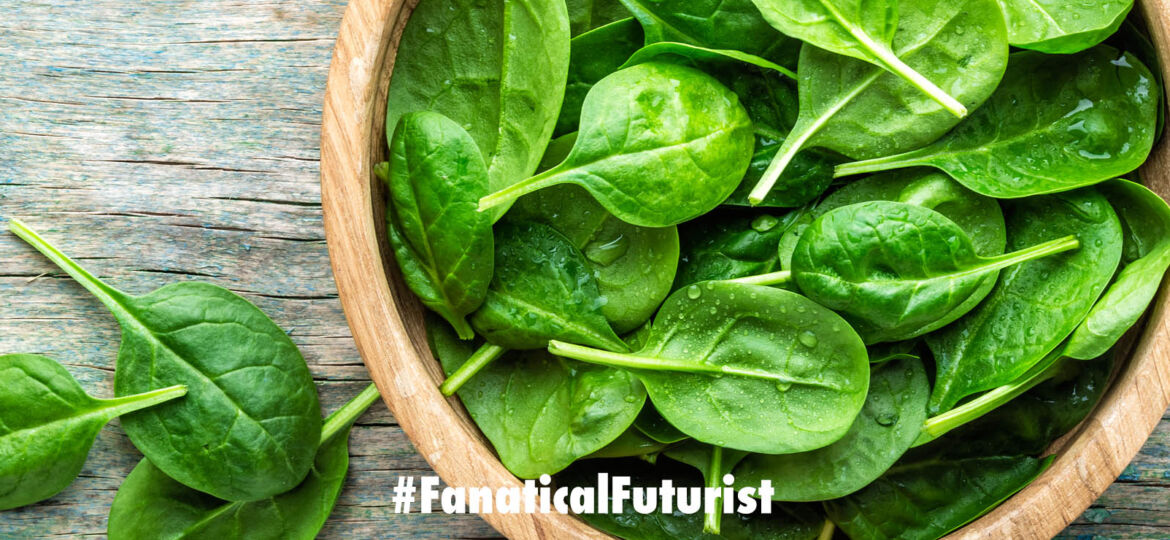
WHY THIS MATTERS IN BRIEF
Plants are getting more super powers than ever before and it’s all thanks to new tech and weird scientists …
 Love the Exponential Future? Join our XPotential Community, future proof yourself with courses from XPotential University, connect, watch a keynote, or browse my blog.
Love the Exponential Future? Join our XPotential Community, future proof yourself with courses from XPotential University, connect, watch a keynote, or browse my blog.
Over the past couple of years scientists have managed to create plants that generate electricity and can be connected to power the grid, glow, and even grow on Mars. And that’s before I mention what the us military are up to with them which includes everything from finding new ways to bring them back from the dead using genetically engineered bugs, and turn them into living sensor networks.
With so much going on you might ask what’s next for plant-kind?And the answer might surprise you. It may sound like something out of a futuristic science fiction film but scientists have now managed to engineer spinach plants which are capable of sending E-Mails. By using nanotechnology, engineers at MIT in the US have transformed spinach into living sensors capable of detecting explosive materials. These plants are then able to wirelessly relay this information back to the scientists to alert them.
When the spinach roots detect the presence of nitroaromatics in groundwater, a compound often found in explosives like landmines, the carbon nanotubes, which are nanoscale sized tubes made from carbon, obviously, within the plant leaves emit a signal. This signal is then read by an infrared camera, sending an E-Mail alert to the scientists.
This experiment is part of a wider field of research which involves engineering electronic components and systems into plants. The technology is known as “plant nanobionics,” and is effectively the process of giving plants new abilities.
“Plants are very good analytical chemists,” explains Professor Michael Strano who led the research. “They have an extensive root network in the soil, are constantly sampling groundwater, and have a way to self-power the transport of that water up into the leaves.”
“This is a novel demonstration of how we have overcome the plant/human communication barrier,” he adds.
While the purpose of this experiment was to detect explosives, Strano and other scientists believe it could be used to help warn researchers about pollution and other environmental conditions. Because of the vast amount of data plants absorb from their surroundings, they are ideally situated to monitor ecological changes.
In the early phases of plant nanobionic research, Strano used nanoparticles to make plants into sensors for pollutants. By altering how the plants photosynthesized, he was able to have them detect nitric oxide, a pollutant caused by combustion.
“Plants are very environmentally responsive,” Strano says. “They know that there is going to be a drought long before we do. They can detect small changes in the properties of soil and water potential. If we tap into those chemical signalling pathways, there is a wealth of information [we can] access.”
When it’s not busy E-Mailing researchers though spinach looks like it could also hold the key to efficiently powering hydrogen fuel cells too. Scientists from the American University have found that when spinach is converted into carbon nanosheets, it can function as a catalyst to help make metal-air batteries and fuel cells more efficient.
“This work suggests that sustainable catalysts can be made for an oxygen reduction reaction from natural resources,” explains Professor Shouzhong Zou, who led the paper.
Metal-air batteries are a more energy efficient alternative to Lithium-Ion batteries, which are commonly found in commercial products like smartphones.
Spinach was specifically chosen because of its abundance of iron and nitrogen, which are important elements in compounds that act as catalysts. The researchers had to wash, juice and grind the spinach into a powder, turning it from its edible form into nanosheets suitable for the process.
“The method we tested can produce highly active, carbon-based catalysts from spinach, which is a renewable biomass,” adds Zou. “In fact, we believe it outperforms commercial platinum catalysts in both activity and stability.”
And there you have it – spinach truly is a super plant.
















